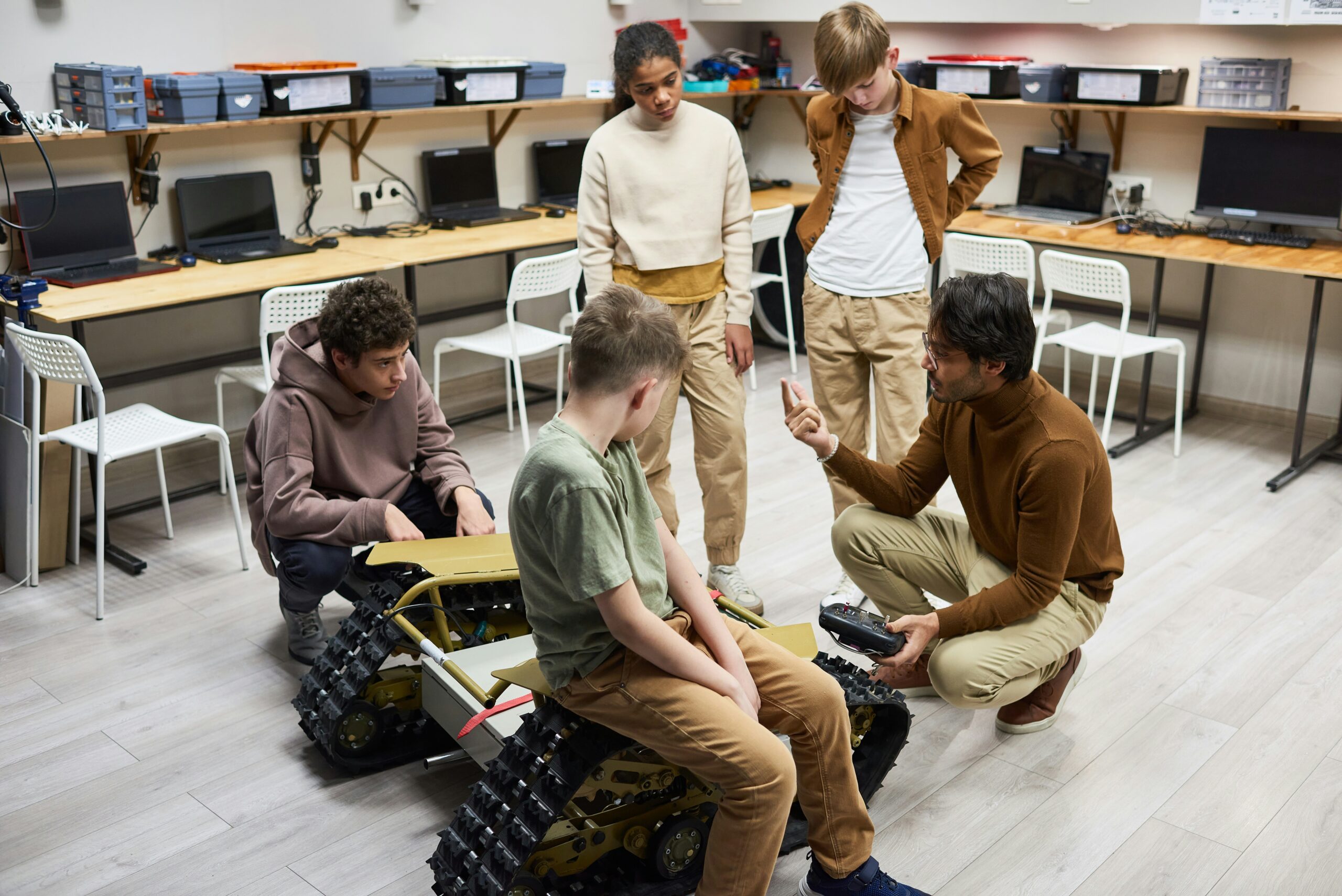
Senior design projects, a critical component in engineering and technical education, offer students the opportunity to apply theoretical knowledge to real-world problems. These capstone projects serve as a culmination of years of study, demanding creativity, innovation, and teamwork. However, to truly bridge the gap between academia and industry, mentorship and sponsorship play crucial roles. By providing students with expert guidance, resources, and professional networks, these support systems foster a transformative learning experience that not only helps students succeed in their projects but also prepares them for future careers as innovators.
This article delves into the importance of mentorship and sponsorship in senior design projects, exploring how these components contribute to personal growth, technical development, and career readiness.
The Importance of Senior Design in Engineering Education
Senior design projects serve as the pinnacle of an engineering or technical student’s education, synthesizing knowledge from their entire academic journey. These projects often involve complex, real-world problems that require collaboration, innovation, and advanced technical skills to solve. While classroom learning focuses on theoretical principles, senior design provides a practical context where students can experiment, innovate, and apply their knowledge in tangible ways.
However, the challenges of senior design are more than technical. Students must also navigate teamwork, project management, budgeting, and effective communication with stakeholders. Given these demands, mentorship and sponsorship become vital to a thriving senior design experience.
Mentorship: Guiding and Shaping the Innovators of Tomorrow
Mentorship in senior design is one of the most valuable resources for students as they tackle the complexities of their projects. A mentor—usually a professor, industry professional, or experienced engineer—offers guidance, shares technical expertise, and helps students navigate the challenges they encounter. Mentors play a multi-dimensional role, acting as coaches, sounding boards, and sources of professional wisdom.
Technical Expertise and Problem Solving: Mentors help students hone their problem-solving abilities by offering insights that come from years of experience. While students may have the theoretical knowledge to approach a problem, mentors provide a practical understanding of how to apply that knowledge effectively. For example, a mentor might help students identify the root cause of a design flaw, suggest more efficient methodologies, or introduce new tools and techniques that students may have yet to encounter in their coursework.
Professional Development: Mentorship is not limited to technical assistance. Mentors also help students develop professional skills such as project management, communication, and collaboration. They may advise on how to work more effectively in teams, how to meet deadlines, and how to communicate ideas to non-technical stakeholders—skills that are essential in the workplace. Additionally, mentors can share insights into industry trends and expectations, helping students align their projects with current market needs.
Networking and Career Preparation: A mentor can be instrumental in helping students build their professional networks. Through introductions to industry professionals, alums, or potential employers, mentors can help students make valuable connections that may lead to internships, job opportunities, or further collaboration on future projects. These connections can serve as a bridge from academia to the professional world, offering students a head start in their careers.
Sponsorship: Providing Resources and Opportunities
While mentorship provides guidance and expertise, sponsorship offers tangible resources and opportunities that can take a senior design project to the next level. Sponsors can be companies, organizations, or even individuals who provide financial support, materials, access to facilities, or other resources that students need to complete their projects.
Financial Support: Senior design projects can be expensive, particularly when they involve advanced materials, specialized equipment, or software. Sponsors alleviate this burden by providing funding for project costs, which allows students to focus on the quality of their designs rather than budgetary constraints. For example, a company might sponsor a group of students working on a renewable energy project by providing them with cutting-edge solar panels or batteries.
Access to Facilities and Equipment: Some sponsors provide access to specialized facilities, laboratories, or testing environments that universities may have yet to have. This is particularly beneficial for projects requiring advanced machinery, testing protocols, or materials that are not typically available on a university campus. These opportunities allow students to work with real-world tools and technologies, further preparing them for the professional challenges they will face after graduation.
Industry Insight and Feedback: Sponsorship also often involves an element of industry feedback. Sponsors from the corporate world may provide students with insights into market demands, customer preferences, and regulatory considerations that can shape the direction of the project. Additionally, sponsors may serve as external evaluators, offering constructive criticism and suggestions for improvement based on industry standards. This feedback loop ensures that students are not only designing theoretically sound solutions but also creating products and systems that have practical value.
The Combined Impact of Mentorship and Sponsorship
When mentorship and sponsorship are combined, the benefits for senior design students multiply. Mentorship offers the personalized guidance necessary to navigate complex technical challenges, while sponsorship provides the resources and industry insights that help students produce polished, high-quality designs. Together, these support systems enable students to approach their projects with confidence, creativity, and professionalism.
Moreover, mentorship and sponsorship contribute to the long-term development of students as future innovators. By fostering a sense of responsibility, resilience, and adaptability, these relationships help students develop the skills necessary to excel in their careers. As they transition into the workforce, students carry with them not only the technical knowledge gained from their projects but also the professional networks, problem-solving abilities, and industry insights provided by their mentors and sponsors.
Sponsorship and mentorship play indispensable roles in the success of senior design projects, equipping students with the technical, professional, and financial support needed to tackle complex, real-world challenges. As the next generation of engineers and innovators, students who benefit from these relationships are better prepared to make significant contributions to their fields. By fostering collaboration between academia and industry, mentorship and sponsorship create a bridge to the future, shaping the innovators and leaders of tomorrow.